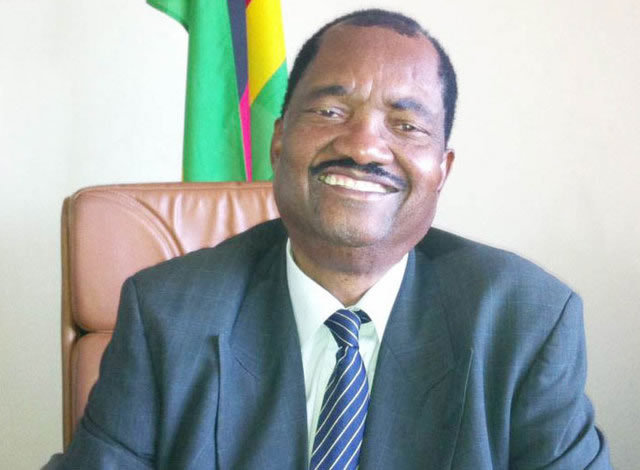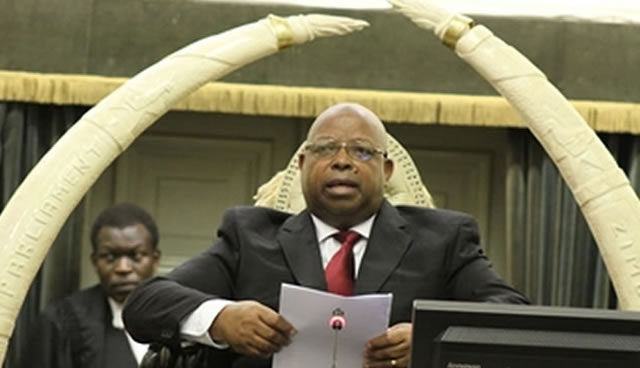PDL linked pay for civil servants

Felex Share Herald Reporter
THE least-paid civil servant should get a salary above the Poverty Datum Line when an increment expected in January after the announcement of the National Budget is effected, the Zanu-PF Politburo resolved yesterday. The PDL — which is the consumer basket for a family of six — stands at US$540 per month and this is the benchmark civil service unions were pressing for.
Government workers are also expected to get “a token increment” before the end of the year which President Mugabe promised.
Speaking to journalists after a six-hour Politburo meeting in Harare yesterday, Zanu-PF secretary for information and publicity Cde Rugare Gumbo said the revolutionary party’s supreme decision making body had unanimously agreed that the welfare of civil servants was a top priority.
He said President Mugabe emphasised the need for Government to increase salaries in line with the PDL.
“We talked about the issues of civil servants,” said Cde Gumbo. “The Politburo resolved that no civil servant will get paid a salary which is below the poverty datum line.
“That is the position of the party, that civil servants will get paid at least above the poverty datum line. It is a very important point and the President was very forceful about it. He felt it was not good that civil servants be underpaid as has been the case in the last four years.”
Civil servants last night welcomed the Zanu-PF position, saying it would “greatly improve” their lives.
Zimbabwe Teachers Association chief executive Mr Sifiso Ndlovu said civil servants would be motivated by the new salaries.
“We would like to congratulate the political determination by Zanu-PF in resolving civil servants’ salary disputes and issues concerning their working conditions because this was a demotivating factor among our staff,” he said.
“I am sure this will remove all the barriers affecting the educational sector. We believe this will have a well negotiated outcome. We knew that the delay in resolving the salary disputes was caused by the thoroughness that Zanu-PF was giving to this issue,” he said.
Teachers Union of Zimbabwe chief executive Mr Manuel Nyawo said it was important that President Mugabe was fulfilling his election campaign message by ensuring the salary increment were effected.
“Considering that this was a resolution by the highest decision making body headed by the President, we are happy because the President had already vowed to make sure that civil servants salaries are improved,” he said.
“We welcome it with so much joy. However, we are waiting for this resolution to be put into action. We would have wanted the Government to intervene before the end of the year.”
Mr Nyawo said civil servants were confident that Zanu-PF would shame its detractors who were predicting doom when the party was actually taking the country on the right path.
Progressive Teachers Union of Zimbabwe secretary general Mr Raymond Majongwe described the resolution as positive.
“That is what we have all been clamouring for,” he said. “The Zanu-PF Government has shown that it is pro-people and pro-poor. This move will change the economy as it will force all other sectors to improve their salaries, but we would also encourage the Government to follow through on the other promises such as non-monetary incentives like housing.
“We are happy, motivated and encouraged by the positive, practical steps that the Politburo has taken,” he said.
The civil servants failed to get a meaningful salary increment for the past five years due to policy inconsistencies by MDC-T ministers in the then inclusive Government, many of whom despite having a trade union background, shut the door in the faces of the needy government workers.
The then Finance Minister Tendai Biti repeatedly told the civil servants that Government was broke, while the then Public Service Minister, Lucia Matibenga arrogantly evaded the workers in times of negotiations.
The lowest-paid Government worker is getting US$297, way below the PDL.
President Mugabe has indicated, on different platforms, that the new Zanu-PF Government prioritises the welfare and conditions of service for civil servants and would improve them.
Cde Gumbo said the Zimbabwe Agenda for Sustainable Socio-Economic Transformation (Zim Asset), an economic blue print expected to turn around the economy for the next five years, was discussed extensively during the Politburo meeting.
“We discussed at length Zim Asset with Finance Minister Cde Patrick Chinamasa telling us what he has done the integrated party position as far as the economic blueprint is concerned,” he said.
“He (Cde Chinamasa) talked about the need now to raise money to implement the programmes outlined in the document and that is what exactly the party asked him to do and he will do that.
“Zim Asset is divided into four clusters and all of them should be implemented. What he has to do is to have plans to raise funds to fund the projects that are enunciated in the framework.”
Government, in line with the winning Zanu-PF manifesto, recently adopted the five-year economic blueprint that sought to achieve sustainable development anchored on indigenisation and empowerment.
The economic plan envisages that the economy will grow by an average of 3,4 percent this year, 6,1 percent next year and continue on an upward growth trajectory to 9,9 percent by 2018.
Cde Gumbo said the forthcoming 14th Zanu-PF Annual National People’s Conference was also on the agenda.
He said this year’s conference, running from December 10 and 15, would be held under the theme: “Zim Asset: Growing the Economy for Empowerment and Employment”.
“All the logistics are being worked out and the Politburo will meet on the 10th of November, with the Central Committee following the next day,” he said.
The Politburo also discussed Provincial election results from the Midlands and Manicaland provinces, before refering the matter to the Central Committee for further deliberation or resolution.
Analysts said while some want Zim Asset to be about economic enablers and development of physical infrastructure like water and energy development, the Zanu-PF leadership was alive to the fact that this risked negating the human factor which is why the thrust is to balance and deal with both the bigger plan of economic enablers which takes longer and the human needs factor which is immediate.
This, they say, is the thinking behind the civil service salary resolution.











Comments